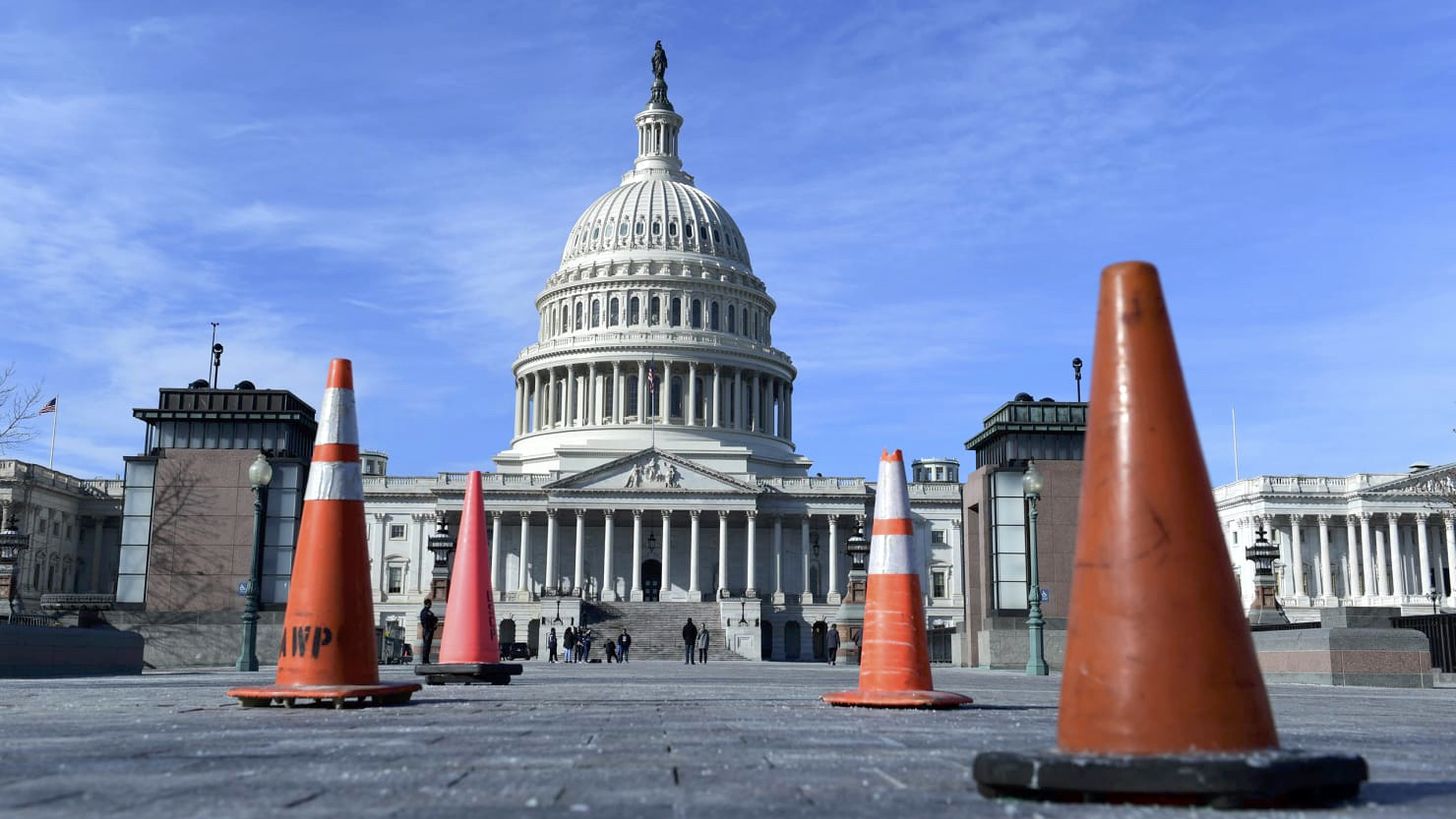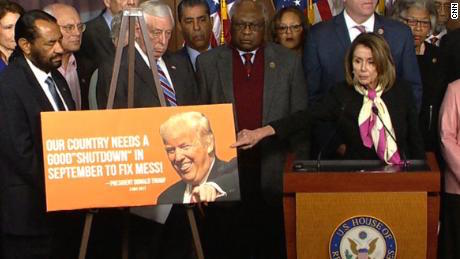
Labels. I think this word gets a raw deal. It’s been twisted and misapplied to the point of lowering it to a near expletive. I’d like to buck this political trend by restoring a perfectly good word from its smeared state.
Here goes:
We use labels and categories to organize and provide meaning. I’m a veteran. This label means that I’m a veteran, that I served in our armed forces. I’m also an American and a citizen. People like you and me who were born in their countries are natural-born citizens. Virtually every nation on Earth makes these distinctions and uses categories to organize and provide meaning for their people.
Illegal immigrant. Illegal alien. Legal resident. When it comes to immigration and citizenship, somehow the phrase “undocumented worker” is deemed more palatable and “humanizing” than the aforementioned perfectly viable labels.
Phrase swapping
Here’s the problem with phrase swapping—it alters meaning and pushes political narratives.
In the case of undocumented workers, the phrase implies that those here in the U.S. illegally are working, but are doing so under the radar. Are all working? The phrase invites us not to focus on the fact that they’re breaking the law, but rather that they’re contributing to our workforce in a desperate (yet honest) striving for a better life. They’re dreamers, you see.
After all, aren’t we all here because our ancestors dreamed of a better life in America? Aren’t we all immigrants? It’s who we are as Americans, right? I’m the grandson of an immigrant. My grandfather came here legally and jumped through all the hoops to become a citizen. He was a dreamer—and an honest one.
Phrase distortion is another political propaganda device. For example, the original phrase “illegal alien” has nothing to do with doing, but rather with being. It’s a temporary state that describes the legality of someone’s status in a sovereign nation; it has nothing to with their humanity.
The dehumanizing argument is a political construct designed, among other uses, to “label” and vilify those who believe in their nation’s immigration laws and its sovereignty and reject open borders and policies that seem driven by mere compassion (or worse) rather than compassion tempered by wisdom … and a respect for the rule of law.
Legal, precise and meaningful labels like illegal alien do not strip anyone of their humanity or God-created image. If you disagree and FEEL that they do, I’m not surprised. For years, we’ve been pelted with politically driven and partisan constructs like this one through education, social and other media, Machiavellian politicians and a subjective spirit of the age.
Rule of Law
Do you think it’s right to break the law? And I don’t mean laws you think are wrong; I mean laws that have withstood legal challenges and that the majority of citizens support—like our immigration laws.
Is it right for a father to break the law by breaching an enforced border, so he can work to give his children a better life? Good fathers would do virtually anything to improve their kids’ life chances. Should they break the law?
I applaud fatherly love and devotion, but don’t see how flaunting of the rule of law would provide a good example for one’s children. It seems to me that a father who respects the rule of law would offer an essential character building example for his kids and that this example would go much further in improving their life chances.
Here’s my advice to a father seeking to improve his children’s futures: If you can’t find suitable work to provide for your family in your country, seek employment in ours, but do it lawfully.
I’ve read someone claim that it’s human nature to put labels on people to help us rationalize decisions when we dehumanize others by categorizing them. Really? Labeling people to rationalize or dehumanize them is NOT in my nature. This is another construct and a faulty argument.
It’s faulty because it’s based on the flawed premise that labels dehumanize. I grant that there are people who use labels to devalue others. There are racists and elitists in our midst. But to say that this is in our nature is a stretch. And to say that categorizing people in terms of their legal or illegal status is dehumanizing is to buy into a cheap and transparent political ploy.
It seems to me that attempts to dehumanize come mostly from one side of the argument—i.e. those who believe in border security are heartless, unfeeling, alt-righters, uber-nationalists, and/or racists. The labels-to-dehumanize argument is lazy and partisan and a dishonest justification for anti-border security arguments.
Rubber meets road
Consider this hypothetical:
You live in a southern border town. People who chose to run the gauntlet show up on your porch. They’re tired, thirsty and frightened. What do you do? You give them water—just as I would and just as the neighboring pro-border wall ranchers would had they been standing on their porches. (And just as border patrol agents would.)
Are you breaking the law? It’s not illegal to give illegal immigrants water, is it? Now if you were maintaining water stations and, by doing so, helping people break the law and attracting more people to break the law, would this be wrong?
Now remember: These people are CHOOSING to break the law—they aren’t forced to—a lack of job opportunities in their area of, in this case, Mexico, does not justify their decision to break our laws. Aren’t we all accountable for our decisions?
Let’s consider this example:
You live in France in 1943. You’re working and living on a farm. In the dead of night, a family of Jews appears on your doorstep. They’re haggard, cold, tired, hungry, scared out of their minds and a half-day ahead of the Gestapo. The puppet Vichy government has decreed it unlawful to help fleeing Jews. What do you do?
You do just what I hope I would do—you give them food, water and shelter and a hiding place. Or do you give in to fear and close the door? Why put your life in danger? Because your government’s law violates God’s laws. You help them out of love and obedience to Almighty God and in defiance of your weakling government that’s doing the will of its evil client regime.
Big differences
Let’s review some key differences in these scenarios:
A) One describes a violation of God’s laws.
B) The people in one scenario are forced to flee and break the law; they have no other choice. Instead of looking for work, they’re looking to stay alive.
C) The American government is not a Vichy government enforcing evil immigration laws.
More questions:
Is the rule of law dependent on compassion? Do you think Nancy Pelosi and her colleagues know real hardship? Just because they care about people doesn’t mean they can empathize with them.
How much of their concern for illegal immigrants is powered by real compassion and how much is driven by new voter creation … or a craving for the endorphin release that comes with an eight-hour self-promoting pro-Dreamer speech?
In any case, why do we give them a pass to vilify their opponents, slander them and insult our intelligence by feeding us bull that they’re the only ones who care because they’re willing to brush aside the rule of law in order to help people break our laws?
God and borders
To those who think sovereign nations have no business securing their borders and like to say that God is on their side; here are a few questions to ponder and a counter argument to consider:
What if God recognizes nations and their sovereignty and rule of law regarding immigration? After all, the concepts of national sovereignty and natural-born citizenship originated from God regarding his people.
If this is true, there’s a sanctity to the rule of law. And if all legitimate laws come from God and are instituted by him, as Paul says in Romans 13, all are called to obey the laws of the land—UNLESS they conflict with God’s laws.
Whether or not you accept these as truths, here’s my challenge:
Convince me that the immigration laws that we have on our books conflict with God’s, and I’ll storm the Bastille with you. I’ll resist a border wall to the death. I may even join your silly resistance.
Let’s put rubber to road: Where does God stand on refugees and widows and orphans fleeing intolerable living conditions?
I think we can agree that he stands above and beyond petty politics and weaponized partisan constructs. We’re right to extend help and compassion toward refugees, travelers and the poor and widows. God is right there with us in our compassion and love toward others.
However, if you equate border walls and enforcement of existing immigration laws and those who the value rule of law to a lack of compassion, cruelty, hubris and any other misplaced, cheap and partisan propaganda word-bomb, I say you are wrong. This equivalence (which isn’t) is a form of arrogance and ignorance.
And so is the notion that, in a little over two centuries, we’ve evolved to the point that we’ve outstripped elements of our Constitution’s applicability to our lives and laws.
Our Constitution
Our Constitution is certainly not inerrant. It has its flaws just as we have ours. I have problems with some of Jefferson’s ideas about government and the governed and some of his word and phrase choices in it, but it is nevertheless a beautifully written document. It’s also merely a document; there’s nothing living or breathing about it. But it’s just as relevant today as it was 200 plus years ago.
Here’s why: We haven’t evolved in any way that requires alteration of our Constitution. Human nature and the nature of our fallen world haven’t changed a lick. Solomon is right on—there is nothing new under the sun. People are people now and certainly haven’t evolved significantly in a mere two centuries and some change.
The living-breathing-document-that-must-evolve-jazz is yet another political/social construct. And it is so because those who espouse it arrogantly deny the unchanging nature of our nature. This concept is shortsighted and reeks of presentism. And to some it has evolved from an element of their ideology to a core belief of their secular theology.
Ideology vs. theology
Ideology is an important component of one’s belief system. So is theology. Which has the preeminence in your worldview?
I try to make sure the ideas I embrace regarding government and politics are ruled by my understanding of God’s take on government. When I examine them in this light, I always return to Romans 13.
There’s something liberating about laying my passions and feelings about what’s wrong or right with government next to the black and white words found in the only truly living and breathing document and one that never needs nor allows adaptation to the spirit of the age.
Disagree with me? Bring it.
But do so with substantive, ad hominem attack-free arguments and honest discussion. Don’t take the easy, lazy, low road. It requires little effort to pour to page emotive, amorphous, feel-good and universal-sounding truths; it’s much more difficult to provide logical, thoughtful defenses of ideas. The former is another aspect of our shallow spirit of the age; the latter is a lost art.
Let’s rediscover it.



